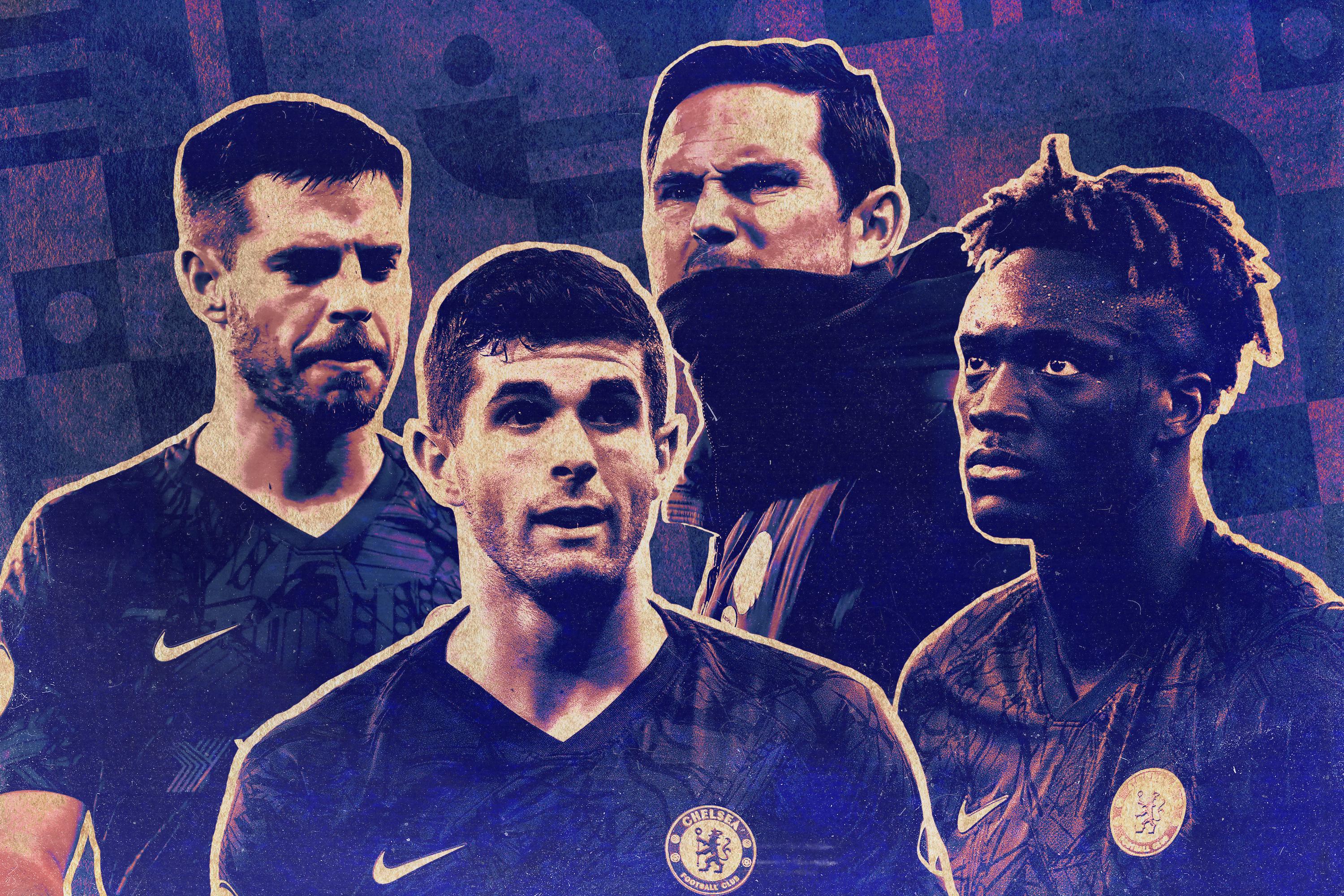Frank Lampard’s Chelsea Remain the Premier League’s Strangest Question Mark
The Blues got off to a surprisingly hot start after losing Eden Hazard to Real Madrid, hiring the unproven Lampard as manager, and being hit with a transfer ban. Now, the team is struggling again. What should fans hope for in a season that was lost, then found, then lost again?
“Healthy soccer fandom” is an oxymoron, but if you can have the closest approximate thereof, it comes from setting realistic expectations for your team. If, at the beginning of the season, you’d told the fans of newly promoted Premier League side Sheffield United that their team would finish 17th, they’d likely be happy just avoiding relegation. But now that, 26 matches into the season, the Blades are sitting in sixth place—a point above Manchester United and a point below Tottenham Hotspur—fans might be wondering how many of their peers made deals with Satan.
As Sheffield continues to be the most overachieving Premier League club since Leicester City inexplicably won the title a few years ago, West Ham, a top division mainstay in the midst of a relegation battle, is the inverse: The club represents how everything can go horribly wrong.
But what happens when a club’s expectations for the season are that they barely have any expectations at all? That’s the bizarre dilemma Chelsea and its fan base have faced this season.
Going into the season, the club was handed a two-window transfer ban after breaching FIFA rules for signing minors, while also seeing talisman Eden Hazard and his bulbous ass leave for Real Madrid. Losing one of the best players on the planet without even getting the chance to replace him is typically a recipe for regression. If that weren’t disconcerting enough, Chelsea were also swapping out the managerial expertise and attack-minded philosophy of Maurizio Sarri for Frank Lampard, who, after coaching a single season at Championship-level Derby County, got the gig mostly by virtue of his legendary status as a former player.
With an inexperienced manager and a Hazard-less roster that would have to rely on Chelsea’s vaunted-but-rarely-used youth academy, the Blues were in a strange situation given their financial stature. So, instead of realistically hoping the club could compete for the Premier League title, fans were rooting for a youth movement, waiting out a transfer ban, and hoping Lamps could be half as good of a manager as he was a player. (Also, selfishly, as a Chelsea fan, I was hoping American superstar Christian Pulisic could live up to his potential and somewhat fill Hazard’s thicc gap on the wing.)
The problem with tempered expectations is that any sign of progress, no matter how small, necessarily inflates them. A run of six successive Premier League wins from the end of September through November solidified the Blues’ place in the top four—an important benchmark since the league’s top four qualify for the Champions League—and was largely defined by contributions from the youth. Tammy Abraham (22), a deadly beanstalk in the box, remains the team’s leading Premier League scorer with 13 goals; Pulisic (21) has shined when he isn’t being hampered by injuries; midfielder Mason Mount (21), while inconsistent, eagerly speeds across the pitch like he’s inhaled three cups of cold brew; right back Reece James (20), who’s built like a linebacker, has been so good that incumbent right back/team captain Cesar Azpilicueta must now settle for playing out of position at left back.
Lampard, meanwhile, deserves some credit for his willingness to switch formations depending on the opponent, a hopeful sign that he isn’t as predictable as Marcelo Bielsa’s PowerPoint presentation made him out to be. Maybe weirdest of all: The team is actually getting outside praise for using their prospects and being fun to watch, instead of the usual antipathy that comes with having deep pockets and being owned by a Russian oligarch. The prevailing sentiment was that the Blues were ahead of schedule—and that the youth were less prospects than burgeoning stars in waiting.
But familiar and consistent problems have continued to mount—the Blues have four wins in their last 14 Premier League matches, dropping points to clubs also contending for the top four in Arsenal, Leicester, and Manchester United. The team continues to be hilariously exploitable on set pieces; it’s clear that the team’s zonal marking needs a massive overhaul or to be scrapped altogether. Kepa Arrizabalaga, the most expensive goalkeeper in the world, has the worst save percentage in the league—and just from the eye test, it appears his hands are made of papier-mâché. When Abraham is injured or resting, Lampard has insisted on using the Belgian Michy Batshuayi, who plays like his cleats are covered in fry grease, over World Cup winner and meaty-forehead owner Olivier Giroud. (Thankfully, Batshuayi’s woeful performance against United might’ve been the last straw; Lamps has already benched Kepa. We’ll see if they ever figure out how to defend set pieces.) And when the team’s transfer ban was lifted a window early in the winter, they failed to sign anyone despite pressing needs at forward and left back.
All told, Chelsea’s season has been two steps forward, one step back—the kind of compromise that most Blues fans would’ve been comfortable with at the beginning of the season. But chaos has infected the rest of the Premier League (minus the ruthlessly efficient Liverpool): Somehow, fourth-placed Chelsea are closer to last-placed Norwich City than the top of the table—and the fact that the club is still in fourth place after so many torrid results has more to do with Man United, Spurs, and Arsenal continually shitting the bed. (A reminder: Two of those clubs are behind SHEFFIELD UNITED.) Now, after losing at home to Manchester United on Monday, it’s become evident that expecting nothing was always going to be a temporary salve for a club conditioned for success.
With 12 matches remaining, that’s made finishing in the top four achievable for a team that wasn’t supposed to accomplish anything. Anything less than Champions League qualification would compound anxiety that the club is more of a work in progress than the season’s early form indicated, and that Lampard is too inexperienced to lead the Blues in the long term. And so Chelsea’s upcoming schedule will be a season-defining—and given our impatient history, manager-defining?—litmus test. The Blues face fifth-place Spurs on Saturday, followed by the first leg of a Champions League clash against Bayern Munich midweek; Manchester City also await in March.
This was supposed to be a lost—or more generously, an experimental, youth-focused—season for Chelsea, but it’s hard to blame fans conditioned to winning on the pitch this century for growing impatient. The tragic irony of Lampard’s Chelsea is that they burned too brightly when the club was under no immediate pressure, and now have fallen to the wayside just when fans began to have hope. The Blues have enough time to turn things around. I just wouldn’t know what to do with myself if they finished below Sheffield United.

